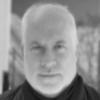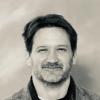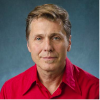TBA
This working group will cultivate a community around a growing (and notably interdisciplinary) field of research. While a large literature of published work on the history of the cognate areas of film, media, and communication has accumulated over the last 40 years or so, there is nothing like a community or subfield in the manner of the history of psychology, economics, or sociology. Indeed, historical work on the media fields is notably cut off from better established fields in the history of social science, with which it often intersects. Connections with the far less developed history of the humanities are also awaiting development, since major strands of media, communication, and especially film studies have their origins in, and are oriented toward, the humanities.
Consortium Respectful Behavior Policy
Participants at Consortium activities will treat each other with respect and consideration to create a collegial, inclusive, and professional environment that is free from any form of discrimination, harassment, or retaliation.
Participants will avoid any inappropriate actions or statements based on individual characteristics such as age, race, religion, ethnicity, sexual orientation, gender identity, gender expression, marital status, nationality, political affiliation, ability status, educational background, or any other characteristic protected by law. Disruptive or harassing behavior of any kind will not be tolerated. Harassment includes but is not limited to inappropriate or intimidating behavior and language, unwelcome jokes or comments, unwanted touching or attention, offensive images, photography without permission, and stalking.
Participants may send reports or concerns about violations of this policy to conduct@chstm.org.
Upcoming Meetings
Wednesday, September 17, 2025, 10:00 - 11:00 am EDT
Wednesday, October 15, 2025, 10:00 - 11:00 am EDT
TBA
Wednesday, November 19, 2025, 10:00 - 11:00 am EST
TBA
Past Meetings
-
In this session, we will read Eugenia Mitchelstein and Pablo J. Boczkowski's “What a Special Issue on Latin America Teaches Us about Some Key Limitations in the Field of Digital Journalism” (2021) and Brian Ekdale, Kathryn Biddle, Manfred Asuman, Melissa Tully, and Abby Rinaldi's “Global Disparities in Knowledge Production within Journalism Studies: Are Special Issues the Answer?”
-
In this session, we will read Gabriella Szabó's “Communication and Media Studies in Hungary (1990–2020)” (2021) and Márton Demeter, Dina Vozab, and Francisco José Segado Boj, “Research Collaboration of Communication Scholars from Central and Eastern Europe: A Longitudinal Network Analysis.”
-
In this session, we will read Chris Russill's “Dewey/Lippmann Redux” (2016) and Dominique Trudel and Juliette De Maeyer's “Franklin Ford: The Conundrum of the Day.”
-
In this session, we will read Nils Gilman's “The Cold War as Intellectual Force Field" and Arvind Rajagopal's “Cold War Communication: A Global History."
-
In this session, we will read Robert T. Craig's “For a Practical Discipline” (2018) and Sarah Cordonnier's “Constituted and Constituting Exclusions in Communication Studies”.
-
In this session, we will read Richard Levins's “Dialectics and Systems Theory” (1998) and Angela Xiao Wu's “Journalism via Systems Cybernetics: The Birth of the Chinese Communication Discipline and Post-Mao Press Reforms”.
-
In this session, we will read Armond Towns's “Toward a Black Media Philosophy” (2020) and Wendy Willems's “Re-Reading Habermas in the Context of Slavery and the Slave Trade."
-
In this session, we will read Peter Decherney's “The Museum of Modern Art and the Roots of the Cultural Cold War” (2005) and Nathaniel Brennan's “Content Analysis, Inc.: Producing and Managing Cultural Intelligence at the Museum of Modern Art.”
-
In this session, we will read Hemant Shah's “Lerner at Columbia: The Voice of America’s Turkey Studies” (2011) and Jülide Etem's “US Government-Sponsored Audience Reception Research in Turkey and Modernization through Educational Films.”
-
In this session, we will read David Hollinger's "The Knower and the Artificer" (1987) and Pete Simonson's "Peirce, Nietzsche, and the Modernist Reinvention of Rhetoric".
-
In this session, we will read Peter Galison's “The Ontology of the Enemy: Norbert Wiener and the Cybernetic Vision” (1994) and Katie Bruner's “Seeing the Unforeseen: The Compton Reforms and the Edgerton Flash Unit, 1939-1945”.
-
In this session, we will read Margaret Rossiter's “The Matilda Effect in Science” (1993) and Leonarda García-Jiménez and Esperanza Herrero's “Including Female Voices in the Stories We Tell About Communication Research: Memories and Narratives of Women in Academia.”
-
In this session, we will read Maria Löblich (a member) and Andreas Scheu, "Writing the History of Communication Studies: A Sociology of Science Approach" (2011) and a working paper by two of our members, Stefanie Averbeck-Lietz and Sarah Cordonnier, "French and German Theories of Communication: Comparative Perspectives."
-
In this session, we will read Robert Dahl's “The Behavioral Approach in Political Science: Epitaph for a Monument to a Successful Protest” (1961) and Fenwick McKelvey's “The Modelled American Voter,” draft chapter of VOTER_MACHINE_WORLD: America’s Quest for Computer Models of Elections and World Affairs. (Note: Also included is the introduction to book section that the draft chapter will appear in. We plan to discuss the entire chapter as well as this introduction, but given the document’s length we will foreground the first of the three models discussed (pages 2 to 18 in the chapter draft) in our discussion.)
-
In this session, we will read Erik Vroons' “Communication Studies in Europe: A Sketch of the Situation around 1955” (2005) and a working paper authored by one of our members, Hynek Jeřábek, “How Empirical Social Research Gained Ascendancy in Post-war France.”
-
In this session, we will read Robert Alun Jones' “The New History of Sociology” (1983) and a working paper authored by one of our members, Jeff Pooley, “The Declining Significance of Disciplinary Memory: The Case of Communication Research.”
-
In this session, we will read Jamie Cohen-Cole's “Instituting the science of mind: intellectual economies and disciplinary exchange at Harvard’s Center for Cognitive Studies” (2007) and a working paper authored by one of our members, Katya Babintseva, “From Control to Freedom and Back Again: the PLATO Computer and Cognitive Psychology in the 1960s-1970s.”
-
In this session, we will read Perrin Selcer, “The View From Everywhere: Disciplining Diversity in Post–World War II International Social Science” (2009) and a draft paper authored by one of our members, Sarah Nelson, “A Dream Deferred: Unesco, American Expertise, and the Eclipse of Radical News Development in the Early Satellite Age.”
Note: Download the two readings as a single zip file in the “Readings” tab in the upper right.
-
In this third session, we will read Gustavo Sorá and Alejandro Blanco, “Unity and Fragmentation in the Social Sciences in Latin America” (2018) and a draft paper authored by one of our members, Raúl Fuentes-Navarro, “Latin American interventions to the practice and theory of communication and social development: on the legacy of Juan Díaz-Bordenave.”
Note: Download the two readings as a single zip file in the "Readings" tab in the upper right.
-
In this second session, we will read Johan Heilbron, Nicolas Guilhot, and Laurent Jeanpierre, "Toward a Transnational History of the Social Sciences" (2008) and a draft paper co-authored by one of our members, Wendy Leeds-Hurwitz (and Adam Kendon), "The Natural History of an Interview and the Microanalysis of Behavior in Social Interaction: A Critical Moment in Research Practice".
Note: Download the two readings as a single zip file in the "Readings" tab in the upper right.
Pagination
- Previous page
- Page 2
- Next page
Group Conveners

Dave Park
David Park (PhD, University of Pennsylvania) is the James D. Vail III Professor of Communication at Lake Forest College in Lake Forest, IL. His scholarship addresses historical topics in communication and media studies, with an emphasis on the history of communication associations, media history, and scholarly communication. He is the founder of the Communication History Division of the International Communication Association, and the series editor for the Critical Introduction to Media and Communication Theory series at Peter Lang publishers. He is the author of Pierre Bourdieu: A Critical Introduction to Media and Communication Theory (Peter Lang, 2014). He has also co-edited The History of Media and Communication Research (Peter Lang, 2008), The Long History of New Media (Peter Lang, 2011), The International History of Communication Study (Routledge, 2015), Communicating Memory and History (Peter Lang, 2018), and The Inclusive Vision: Essays in Honor of Larry Gross (Peter Lang, 2018).

Jeff Pooley
Jeff Pooley (PhD, Columbia University) is affiliated professor of media & communication at Muhlenberg College in Allentown, PA, and lecturer at the Annenberg School for Communication, University of Pennsylvania. His research interests center on the history of media research within the context of the social sciences, with special focus on the early Cold War behavioral sciences. He is author of James W. Carey and Communication Research: Reputation at the University’s Margins (Peter Lang, 2016), and co-editor of The History of Media and Communication Research (Peter Lang, 2008), Media and Social Justice (Palgrave, 2011), and Society on the Edge: Social Science and Public Policy in the Postwar United States (Cambridge University Press, 2021). He is co-founder of the Society for the History of Recent Social Science, and has published articles and book chapters on a range of related topics.

Pete Simonson
Pete Simonson (PhD, University of Iowa) is professor emeritus of communication at the University of Colorado Boulder. His research centers on the international history of communication and media studies, intellectual history, feminist historiography, and the interdisciplinary connections of rhetoric with philosophy, political theory, sociology, and anthropology. He is the author of Refiguring Mass Communication: A History, and editor or co-editor of The International History of Communication Study, The Handbook of Communication History, and Politics, Social Networks, and the History of Mass Communications Research: Re-Reading Personal Influence. Together with Jeff Pooley and Dave Park, he co-edits the scholar-run, open access journal History of Media Studies.